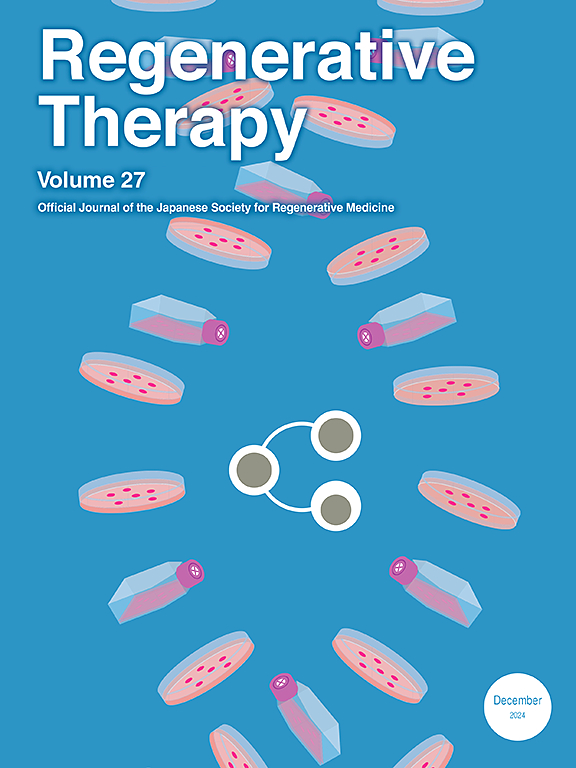In vitro and in vivo study of concentrated growth factor (CGF) mediating macrophage polarization in bone defect repair
IF 3.5
3区 环境科学与生态学
Q3 CELL & TISSUE ENGINEERING
引用次数: 0
Abstract
Concentrated growth factor (CGF) is widely applied in clinical practice, but whether it has bone promoting effects and its mechanism of action are still the focus of discussion. In this study, in vitro experiments demonstrate that CGF can promote the expression of Arg-1 in BMDM cells, facilitating their polarization towards the M2 macrophages and encouraging the secretion of IL-10 and VEGF-A. CGF modulates M1 macrophages by reducing the expression of iNOS, while enhancing Arg-1 expression, thereby converting them to M2 macrophages. This is accompanied by a decrease in the secretion of TNF- and IL-1β, and an increase in the secretion of IL-10 and VEGF-A. Mechanistically, CGF promotes the phosphorylation of STAT3, which in turn induces M2 macrophage polarization, suggesting that the function of CGF-mediated macrophages may be associated with the STAT3 signaling pathway. Moreover, CGF-mediated macrophages were found to enhance osteoblast activity, increasing the expression of ALP, RUNX2, and BMP-2, and improving cell migration capabilities. In vivo experiments showed that CGF could early recruit M2 macrophages to the bone defect site, promoting the expression of bone formation-related proteins such as ALP and BMP-2, and accelerating bone tissue regeneration. In summary, our study demonstrates that CGF can induce bone repair and regeneration by promoting immune modulation and macrophage polarization.
浓缩生长因子(CGF)介导巨噬细胞极化在骨缺损修复中的体内外研究
浓缩生长因子(CGF)在临床中应用广泛,但其是否具有促骨作用及其作用机制仍是人们讨论的焦点。在本研究中,体外实验证明CGF可以促进BMDM细胞中Arg-1的表达,促进其向M2巨噬细胞极化,促进IL-10和VEGF-A的分泌。CGF通过降低iNOS的表达调节M1巨噬细胞,同时提高Arg-1的表达,从而将其转化为M2巨噬细胞。这伴随着TNF-α和IL-1β分泌的减少,IL-10和VEGF-A分泌的增加。机制上,CGF促进STAT3磷酸化,进而诱导M2巨噬细胞极化,提示CGF介导的巨噬细胞功能可能与STAT3信号通路有关。此外,研究发现cgf介导的巨噬细胞可增强成骨细胞活性,增加ALP、RUNX2和BMP-2的表达,提高细胞迁移能力。体内实验表明,CGF可将M2巨噬细胞早期募集到骨缺损部位,促进ALP、BMP-2等骨形成相关蛋白的表达,加速骨组织再生。综上所述,我们的研究表明CGF可以通过促进免疫调节和巨噬细胞极化来诱导骨修复和再生。
本文章由计算机程序翻译,如有差异,请以英文原文为准。
求助全文
约1分钟内获得全文
求助全文
来源期刊

Regenerative Therapy
Engineering-Biomedical Engineering
CiteScore
6.00
自引率
2.30%
发文量
106
审稿时长
49 days
期刊介绍:
Regenerative Therapy is the official peer-reviewed online journal of the Japanese Society for Regenerative Medicine.
Regenerative Therapy is a multidisciplinary journal that publishes original articles and reviews of basic research, clinical translation, industrial development, and regulatory issues focusing on stem cell biology, tissue engineering, and regenerative medicine.
 求助内容:
求助内容: 应助结果提醒方式:
应助结果提醒方式:


